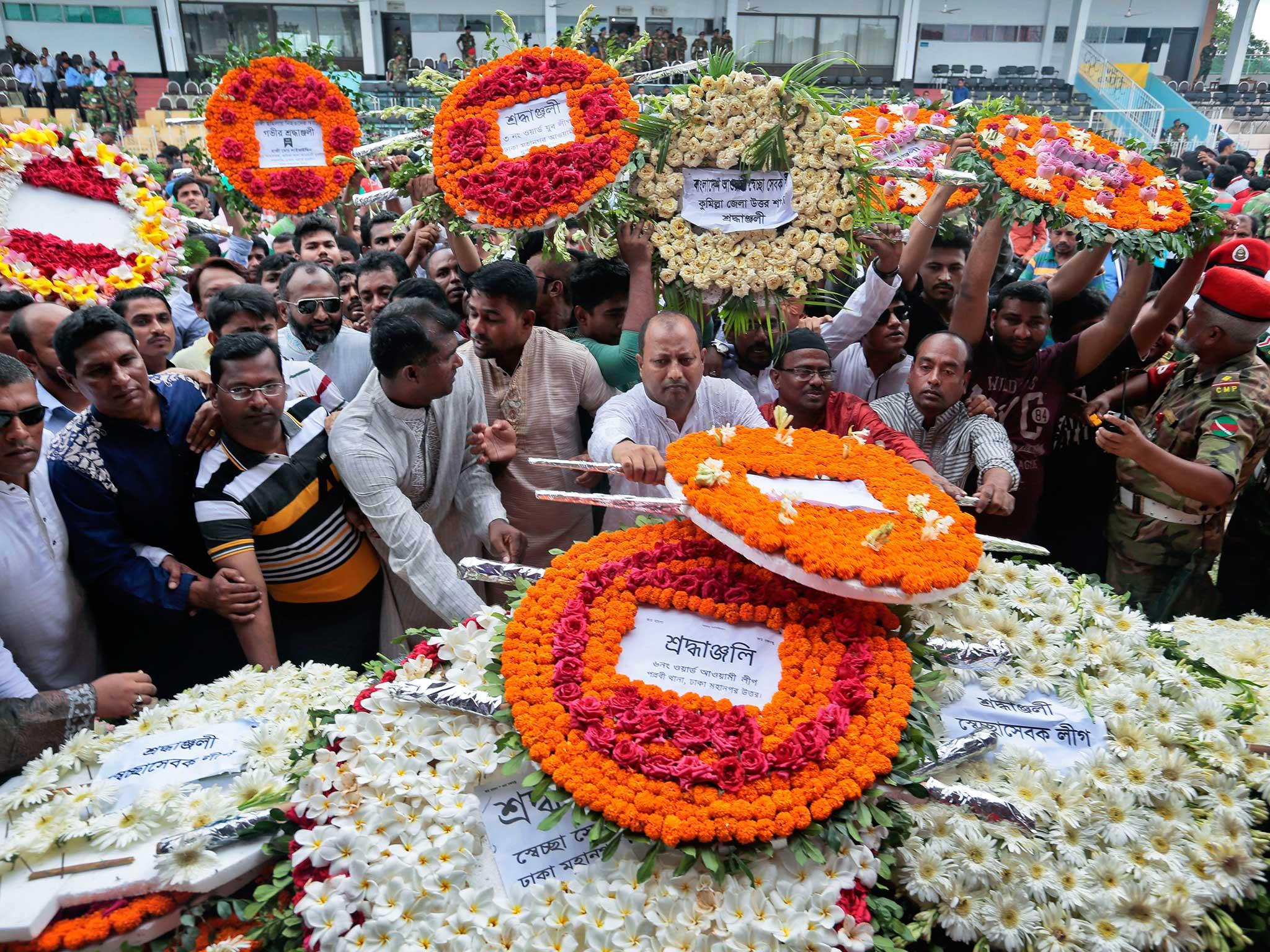Bangladesh attack: Police admit shooting pizza chef dead after mistaking him for militant during Isis hostage crisis
Pizza chef Saiful Islam Chowkidar was reportedly shot dead during a raid to free hostages

Your support helps us to tell the story
From reproductive rights to climate change to Big Tech, The Independent is on the ground when the story is developing. Whether it's investigating the financials of Elon Musk's pro-Trump PAC or producing our latest documentary, 'The A Word', which shines a light on the American women fighting for reproductive rights, we know how important it is to parse out the facts from the messaging.
At such a critical moment in US history, we need reporters on the ground. Your donation allows us to keep sending journalists to speak to both sides of the story.
The Independent is trusted by Americans across the entire political spectrum. And unlike many other quality news outlets, we choose not to lock Americans out of our reporting and analysis with paywalls. We believe quality journalism should be available to everyone, paid for by those who can afford it.
Your support makes all the difference.Police in Bangladesh have admitted they may have mistakenly shot a hostage dead during an Isis attack on a cafe in Dhaka.
An official statement claimed six militants had been killed and one captured during the military operation to free captives after a 12-hour siege at the Holey Artisan Bakery café on Saturday morning.
But Isis said only five attackers were involved, publishing photos of the five militants dressed in black with Arab-style headscarves, smiling with assault rifles in front of the group's flag.
The reason for the discrepancy was initially unclear but Bangladesh’s national police force is now investigating the death of one of the café’s staff members.
A senior police official in Dhaka said pizza chef Saiful Islam Chowkidar was one of six men killed as armed officers and Bangladeshi troops stormed the café to end the 12-hour siege.
Witnesses described militants shouting “Allahu Akbar”, meaning “God is great” as they burst into the Holey Artisan Bakery at 9.20pm local time on Friday (4.20pm BST).
Police said that when security forces tried to enter the premises at the beginning of the siege they were met with a hail of bullets and grenades, killing two officers.
Assailants exchanged sporadic gunfire with police outside for several hours as negotiators attempted to contact the militants before troops raided the building, finding the bodies of 20 hostages inside.

Survivors said Isis militants ordered them to recite verses from the Quran to “prove” they were Muslims, torturing and killing anyone who could not.
More than a dozen Bangladeshi hostages were rescued after passing the twisted test but a Muslim student was among those killed after refusing to desert female friends who were detained for wearing western clothing.
The Holey Artisan Bakery, popular with foreign officials and expatriates, sits in the affluent diplomatic quarter of Bangladesh’s capital near the embassies of the US, Turkey, Germany and other nations.
Nine Italians and seven Japanese aid workers were among those killed, along with three students at American universities.
An Isis-affiliated propaganda agency released photos from inside the restaurant during the raid, appearing to showing the bodies of women and men on the floor in pools of blood by overturned tables and chairs.
The gory release was followed by an official claim of responsibility from the group’s leadership and eulogies for the Bangladeshi attackers with accompanying photographs, indicating significant planning and co-operation.
The restaurant attack marked a major escalation in two years of increasingly frequent atrocities by Islamist militants in Bangladesh, sparking hundreds of arrests.
A string of machete attacks have been claimed by Isis, al-Qaeda and local groups, targeting secular writers, LGBT activists and religious minorities among others, with the latest victim being a Hindu priest hacked to death at a temple in Jhenaidah on Friday.
Bangladeshi authorities have persistently denied Isis or al-Qaeda have a presence in the country, sparking warnings from counter-terror monitors including the Site Intelligence Group, which urged the government to “face the truth.”
The government’s position remained unchanged this week, with Bangladeshi interior minister Asaduzzaman Khan blaming the Jamaat-ul-Mujahideen Bangladesh group and claiming the attackers had “no connections with the Islamic State”.
JMB achieved notoriety through the public lynching of left-wing militants and assassinations of judges, and in 2005 it set off more than 500 bombs in 64 districts simultaneously.
Isis announced its expansion into Bangladesh, which it calls its “Bengal province”, late last year and analysts believe the terror group is recruiting from pre-existing organisations.
Join our commenting forum
Join thought-provoking conversations, follow other Independent readers and see their replies
Comments